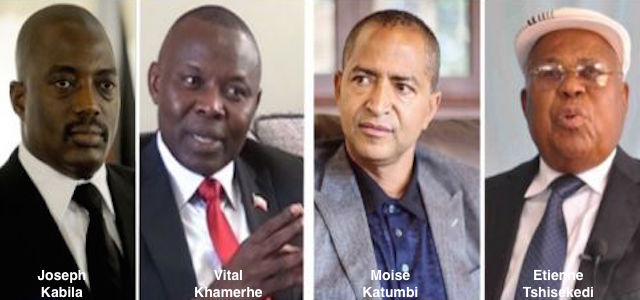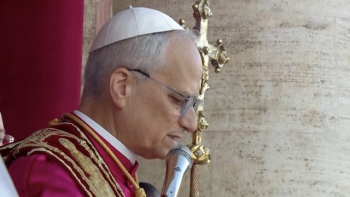On Thursday September 1st, 2016, the much anticipated political dialogue in the Democratic Republic of the Congo (DRC) opened in Kinshasa with a solemn ceremony. The organisation of the political dialogue, facilitated by the African Union envoy, Edem Kodjo, had been in works for some time. Considered improbable at some point because of the opposition refusal to attend, only recently did it become possible when one of the main leaders of the opposition, Vital Kamerhe, decided to change his mind. He leads the National Congolese Union (UNC). Other opposition leaders decided to stay away. They suspect current President Joseph Kabila of seeking to remain in power beyond his current term, using the political dialogue to sanction his decision. President Kabila ends his second and final term in December 2016.
Vital Kamerhe, who has been chosen as the co-chair of the political dialogue, has, in his first speech, called on other opposition leaders to join the dialogue, which, in his opinion is
intended to allowing the holding of "peaceful" and "credible" presidential elections.
"At the end of the preparatory work, I have not noticed that they [the Presidential majority delegates] sought a third term for President Kabila. We will not accept it. We invite those outside to join the dialogue and contribute their wisdom and intelligence so that together we can give to our people the electoral calendar," said Kamerhe.
"Those outside" include the veteran UDPS opposition leader Etienne Tshisekedi and G7 leader, the magnate Moise Katumbi.
During his speech, Vital Kamerhe, went to the length of praising Joseph Kabila's government for its openness and for making sure the prerequisites required by some of members of the opposition, before participating in the dialogue, have been satisfied.
"This is an opportunity to thank the [Joseph Kabila's] government for having begun to take a number of steps to defuse the war-like tension between the opposition and the presidential majority. Some prisoners of war and imprisonned opinion leaders were released. Commendable open gesture. TVs were opened in Kinshasa. This is a step in the right direction"
Before concluding, Vital Kamerhe encouraged the government to do more because: "It's everyone who will win. It will raise the power. It will not humiliate him"
Vital Kamerhe reiterated his invitation towards the opposition to join the dialogue. In order to facilitate the potential change of heart by opposition leaders, he asked the facilitator to suspend the sessions to give more time to the opposition to make up its mind. As of to date, the opposition remains adamant.
On his side, Edem Kodjo said, in his opening speech, "To put some words in context, let me say that I did not come here to push the agenda of X or Y. I did not come here to promote partisan causes. I came here to serve the Congo and to serve Africa."
Meanwhile, the fact that Vital Kamerhe has joined, has been appointed the co-chair and has made such a speech praising the government has puzzled observers. Rumors have already started circulating in Kinshasa that he will be the next Prime Minister, who will lead the transition towards the next presidential elections, to be held mid-next years. Perhaps, to preempt such rumors, Vital Kamerhe mocked the speculations about a hypothetical contract he allgedly signed with President Joseph Kabila.
Observers and common people in Kinshasa were not convinced and consider Vital Kamerhe as the next Prime Minister, come October 2016. Will the prediction materialize?

















